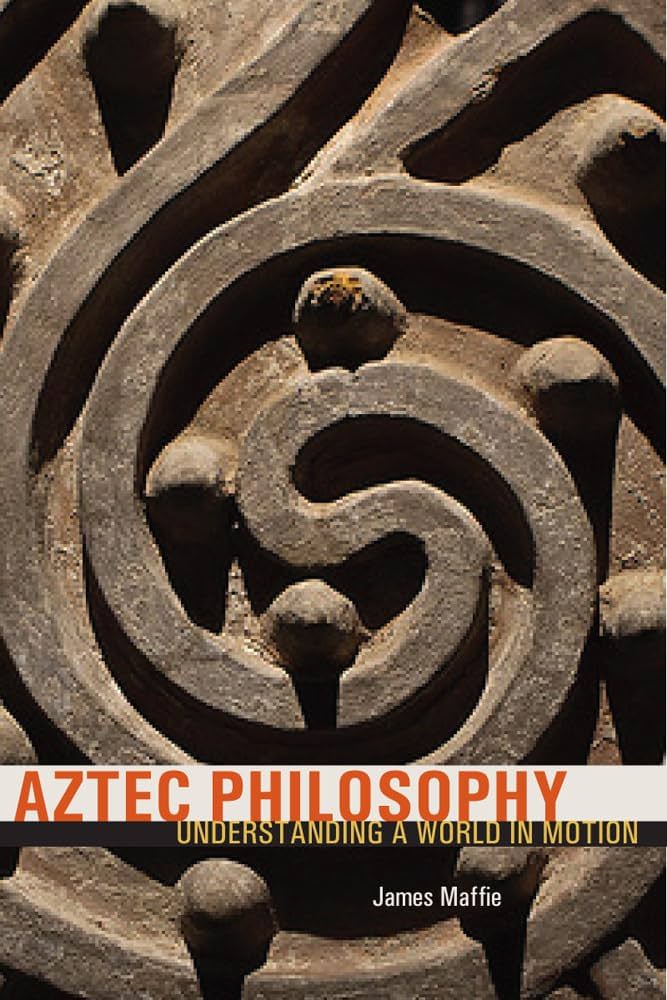Jürgen Hubert reviewed Aztec philosophy by James Maffie
Not the easiest book to read, but very much worth it!
5 stars
It was probably a bit ambitious to read "Aztec Philosophy" as my very first book on philosophy, and thus it took me a long time to finish it. But it was very much worth it, since it allowed me to examine my own Eurocentric perceptions and assumptions on philosophy, metaphysics, cosmology, and so forth. And thus I recommend this book to anyone else who wants to gain a wider perspective on these matters.
Consciously or not (and mostly the latter), most people with an Eurocentric background (including those descended from European settlers) have internalized narratives about the world that are heavily based on both Greek philosophy and Christian theology - and this remains true even for those who have decided to reject Christianity. Aztecs - and other indigenous American people - have long lived in isolation from Europe, and have thus built up their own philosophies and metaphysics which …
It was probably a bit ambitious to read "Aztec Philosophy" as my very first book on philosophy, and thus it took me a long time to finish it. But it was very much worth it, since it allowed me to examine my own Eurocentric perceptions and assumptions on philosophy, metaphysics, cosmology, and so forth. And thus I recommend this book to anyone else who wants to gain a wider perspective on these matters.
Consciously or not (and mostly the latter), most people with an Eurocentric background (including those descended from European settlers) have internalized narratives about the world that are heavily based on both Greek philosophy and Christian theology - and this remains true even for those who have decided to reject Christianity. Aztecs - and other indigenous American people - have long lived in isolation from Europe, and have thus built up their own philosophies and metaphysics which has shaped their understanding of the world in an entirely different way.
Central to Aztec metaphysics is the concept of "teotl" - a divine force (and not energy) that constantly recreates itself in new forms. Everything that was, is, and will be - from rocks and animals, humans, and to the very gods themselves - are merely temporary manifestations of teotl which will eventually decay and dissolve, and then their teotl will manifest in new forms. The goal for humans is then to maintain a good, stable, moderate life on this Earth for long as it will last - for nothing will last forever.
This is the merest gist of the complexities involved, but it is already a huge contrast to the Christian notions of an "eternal, unchanging divine" and the "temporary base matter" of earthly existence - to the Aztecs, there is no fundamental difference between the teotl within a mortal and the teotl within the gods. And while Christian cosmology has a clear beginning and end to Creation, Aztec philosophy does not - existence will always go on, although its form is constantly changing.
Even if you are not a student of philosophy, I recommend this book to #ttrpg players and GMs. For instance, I found that the concept of teotl as described in this work could work surprisingly well for the philosophical underpinnings of "The Force" in #StarWars - it would add some real nuance to the conflicts between the "Dark Side" and the "Light Side". And the concepts within this book could add a lot of nuance and ideas to other settings with complex metaphysics!
You can find a shorter overview article about the concepts explained in this book here:

